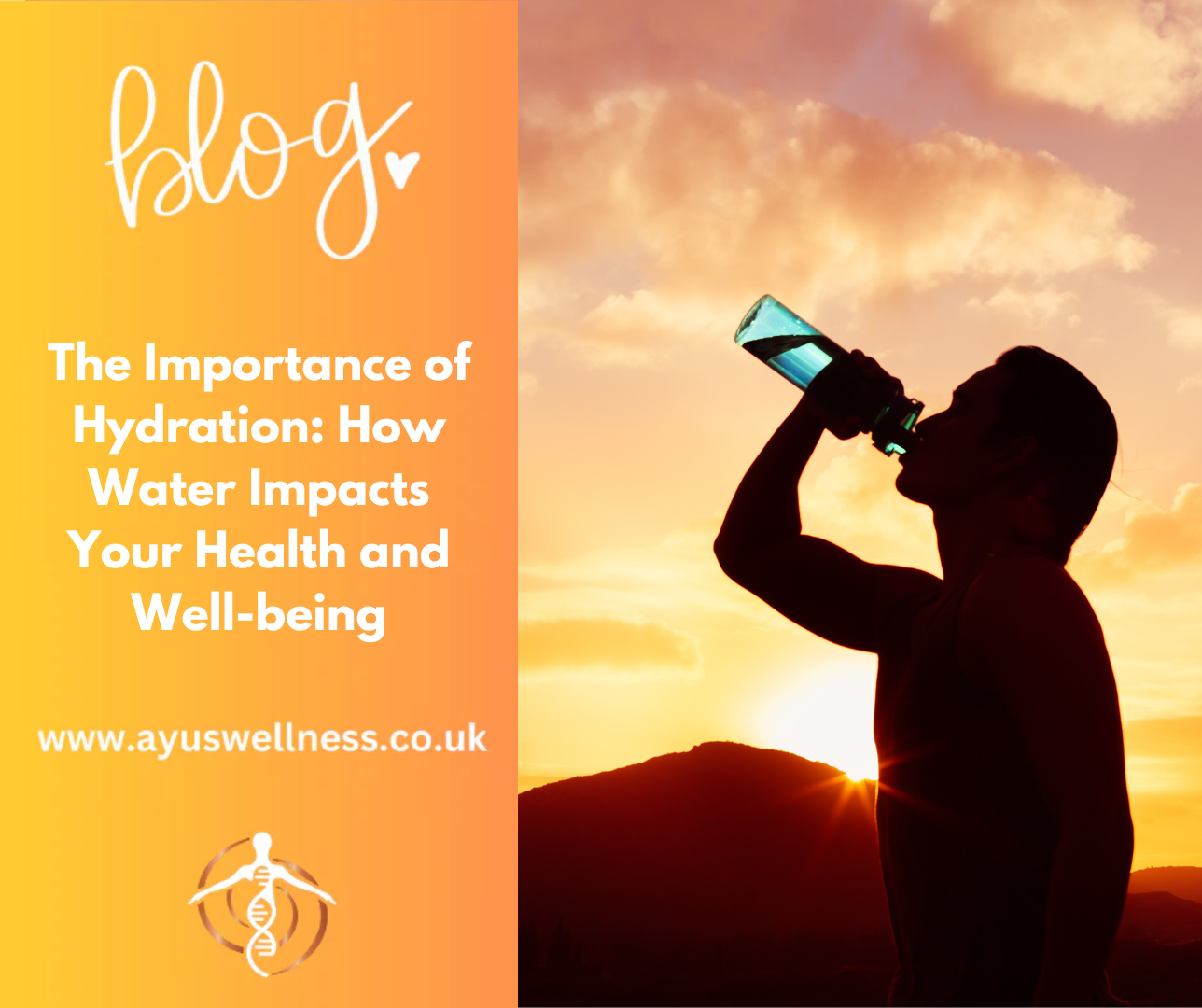
Water is essential for life, playing a crucial role in maintaining various bodily functions and overall well-being. In this blog post, we'll delve into the importance of hydration, explore the benefits of drinking an adequate amount of water, and provide practical tips for staying hydrated.
Introduction:
Water makes up a significant portion of our bodies and is involved in numerous physiological processes, including digestion, circulation, temperature regulation, and waste removal. Despite its importance, many people underestimate the role of hydration in their health and well-being.
- Why Hydration Matters:
Hydration is essential for maintaining proper bodily functions, including nutrient transport, joint lubrication, and temperature regulation.
Water plays a vital role in flushing out toxins and waste products from the body, supporting kidney function and overall detoxification.
Adequate hydration is crucial for cognitive function and mood regulation, as dehydration can lead to fatigue, headaches, and difficulty concentrating.
- Benefits of Proper Hydration:
- Improved physical performance: Staying hydrated enhances endurance, strength, and overall athletic performance by optimizing muscle function and reducing the risk of fatigue and cramping.
- Enhanced cognitive function: Drinking enough water supports brain health and cognitive function, improving memory, focus, and mental clarity.
- Better digestion: Adequate hydration aids in digestion by facilitating the breakdown of food and the absorption of nutrients, preventing constipation and promoting regular bowel movements.
- Healthy skin: Proper hydration helps maintain skin elasticity and hydration, reducing the risk of dryness, wrinkles, and other skin issues.
- Weight management: Drinking water before meals can help reduce calorie intake and promote feelings of fullness, supporting weight loss and weight management efforts.
- Tips for Staying Hydrated:
- Carry a reusable water bottle with you throughout the day as a reminder to drink regularly.
- Drink water first thing in the morning and before meals to jumpstart hydration and promote satiety.
- Flavor water with natural additives like lemon, cucumber, or mint to enhance taste and encourage consumption.
- Balance intake with expenditure, for example, drinking more if you are doing an activity that makes you sweat.
- Consume hydrating foods with high water content, such as fruits and vegetables, to supplement your fluid intake.
- Signs of Dehydration:
Thirst: Feeling thirsty is the body's way of signaling dehydration and the need for fluid replenishment.
Dark urine: Urine color can indicate hydration status, with darker urine suggesting dehydration and the need for more fluids.
Fatigue: Dehydration can cause feelings of fatigue, weakness, and lightheadedness, impacting physical and mental performance.
Dry mouth and lips: Dryness in the mouth and lips is a common symptom of dehydration, indicating the need for hydration.
Conclusion:
Hydration is a fundamental aspect of health and well-being, with far-reaching effects on physical, mental, and emotional vitality. By prioritizing hydration and adopting simple strategies to increase water intake, you can support your body's natural functions and optimize your overall quality of life.



